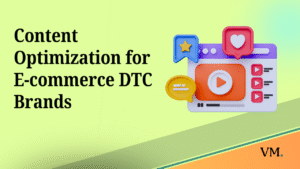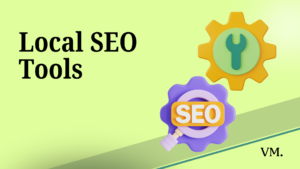Local link building is crucial for businesses looking to improve their visibility in specific areas. By obtaining high-quality local backlinks, businesses can boost their search rankings, attract more local customers, and strengthen community connections.
In this article, we will explore local link building mistakes to avoid. We’ll discuss common mistakes that often hinder those attempting to build local links and provide practical strategies to overcome them. Understanding these challenges is essential for creating a successful local SEO strategy that can benefit your business.
What is Local Link Building?
Local link building is a strategic approach to enhancing a business’s visibility in local search results by acquiring backlinks from websites within a specific geographic area.
In the world of local SEO, these backlinks play a crucial role in improving search rankings.
The Role of Backlinks
Backlinks, or inbound links, are essentially votes of confidence from other websites. When reputable local sites link back to your business, it signals to search engines like Google that your business is both relevant and authoritative in its locality.
This can significantly boost your search engine ranking, making it easier for potential customers in your area to find you.
Geo-Targeted Link Building
Geo-targeted link building takes this concept a step further by focusing on obtaining links from websites that are based within your target location.
This strategy ensures that the backlinks you acquire are highly relevant to your geographical market, which can improve your local search engine rankings even more effectively.
By understanding and implementing local link building strategies, businesses can establish themselves as trusted authorities in their specific regions and attract more local traffic.
Common Pitfalls in Local Link Building and How to Overcome Them
1. Ignoring Search Intent and On-Page SEO
Understanding search intent is crucial for local link building. When users search for something, they have a specific goal in mind—whether it’s finding information, making a purchase, or locating a business. Aligning your content with this intent ensures you meet the needs of your audience, thereby attracting more relevant traffic.
Search intent can be classified into three main types:
- Informational: The user is looking for knowledge or answers.
- Navigational: The user wants to go to a specific website.
- Transactional: The user intends to make a purchase or complete an action.
Creating content that aligns with these intents increases the likelihood of attracting backlinks from other websites, as it provides real value to visitors. A framework for success incorporating search intent into your marketing strategy can significantly enhance your local link-building efforts.
Optimizing on-page elements also plays a significant role in enhancing the effectiveness of your local link-building campaigns.
Here are some key aspects to consider:
- Title Tags: Make sure your title tags are compelling and include relevant keywords. This helps search engines understand what your page is about and improves click-through rates.
- Meta Descriptions: Craft meta descriptions that summarize your content accurately while enticing users to click through. Meta descriptions should be concise, informative, and include key phrases pertinent to local searches.
- Headings (H1, H2, H3): Use headings to organize your content logically. This not only makes it easier for users to read but also helps search engines crawl and index your site more effectively.
By focusing on search intent and optimizing on-page elements like title tags, meta descriptions, and headings, you can create a solid foundation for successful local link-building efforts. Additionally, ensuring that you create SEO-friendly content will further increase your chances of success in local link building.
2. Lacking Linkable Content Assets
Creating valuable content is fundamental to successful local link building. High-quality, informative, and shareable content naturally attracts backlinks from other websites within your niche or locality.
Why Content Matters:
- Authority & Credibility: High-quality content establishes your business as an authority in your field, contributing to your overall topical authority.
- Engagement: Engaging content encourages readers to share, increasing its reach. Consistency in publishing such content is also crucial for maintaining audience interest and engagement, as discussed in this article on the importance of regularly publishing engaging content.
- SEO Benefits: Search engines favor websites with valuable content, improving your rankings. This aspect of content marketing is further explored in our guide on SEO best practices.
Examples of Linkable Content Assets:
- Local Guides: Create comprehensive guides about local events, attractions, or services.
- Case Studies: Share success stories or detailed case studies relevant to your industry.
- Infographics: Visual content like infographics can be highly shareable and informative.
By producing valuable content tailored for your local audience, you not only attract backlinks but also enhance user experience and engagement on your site. This approach aligns with the broader understanding of the benefits of high-quality content, which include establishing brand consistency and authority.
3. Relying on Low-Quality or Irrelevant Links
Acquiring links from spammy or unrelated sources can be a significant setback in your local SEO efforts. These low-quality links not only fail to add value but can also attract penalties from search engines like Google, which prioritize relevance and authority.
To avoid these pitfalls:
- Assess Link Quality: Before pursuing a link, evaluate the domain’s authority using tools like Ahrefs or Moz. Check the site’s spam score and overall reputation.
- Relevance Matters: Ensure the linking domain is relevant to your niche and geographical area. For instance, if you run a local bakery, a backlink from a regional food blog would be more valuable than one from an unrelated tech site.
- Content Alignment: The content surrounding the backlink should align with your services or products. A well-contextualized link holds more SEO weight.
Employing these strategies helps maintain a healthy backlink profile and enhances local search visibility.
4. Overlooking Local Citations and Directories
Local citations are online mentions of your business’s name, address, and phone number (NAP). These citations play a crucial role in establishing trustworthiness and visibility for businesses targeting specific geographic areas. When search engines notice consistent information across various platforms, they are more likely to rank your business higher in local search results.
To enhance your backlink profile and overall online presence, leverage reputable online directories and citation platforms:
- Google My Business: Claiming and optimizing your listing here is essential.
- Yelp: A popular platform for customer reviews and local business listings.
- Yellow Pages: Traditional but still relevant for certain demographics.
- Industry-specific directories: Ensure listings in niche directories related to your field.
By ensuring accurate and consistent local citations, you not only boost your local SEO but also build credibility among potential customers.
5. Failing to Build Relationships with Local Influencers or Websites
Building connections with influential figures or organizations within your community can significantly boost your local link-building efforts. These influencers often have a loyal following and strong domain authority, making their endorsements valuable.
Benefits of Networking with Local Influencers:
- Enhanced Credibility: When a respected local figure links to your website, it enhances your business’s credibility.
- Broader Reach: Influencers have established audiences that trust their recommendations, extending your reach.
- Improved SEO: Quality backlinks from authoritative websites can improve your search engine rankings.
Effective Outreach Techniques:
- Personalized Emails: Craft tailored messages that highlight mutual benefits and shared interests.
- Offer Value: Provide something of value in return, such as exclusive content or collaboration opportunities.
- Engage on Social Media: Interact with influencers on platforms like Twitter and LinkedIn to build rapport before pitching.
- Attend Local Events: Networking in person at community events can lay the groundwork for future collaborations.
Investing time in building these relationships can pay off significantly in improving your local SEO and expanding your online presence.
6. Ignoring Social Media Promotion for Amplifying Local Links
One of the common mistakes in local link building is not using social media to promote the backlinks you acquire. Sharing these links actively on various platforms can greatly increase their visibility and drive more engagement.
Why Social Media Promotion Matters
- Boosting Visibility: When you share your backlinks on social media, you increase the chances of them being seen and clicked by a broader audience. This exposure can lead to more traffic and even additional backlinks as others discover and share your content.
- Encouraging Engagement: Social media platforms are excellent for fostering user interaction. Encouraging comments, shares, and discussions around your content can amplify its reach and authority within your niche.
Tips for Effective Social Media Promotion
To avoid pitfalls in local SEO:
- Consistent Posting Schedule: Maintain a regular posting schedule to keep your audience engaged. Consistency helps build a loyal following that looks forward to your updates.
- Tailored Messaging: Each social media platform has its own unique audience dynamics. Tailor your messages to fit the style and preferences of users on each platform, whether it’s the professional tone of LinkedIn or the casual vibe of Instagram.
Using social media strategically can transform your local link-building efforts, making them more effective and far-reaching.
7. Not Monitoring Your Backlink Profile Regularly
Keeping a close watch on your backlink profile is crucial for maintaining the health of your local SEO strategy. Neglecting this can lead to issues such as broken links or sudden drops in the authority levels of referring domains, which can negatively impact your search rankings.
Key Practices for Effective Backlink Monitoring:
- Regular Backlink Audits: Conduct periodic checks to ensure all acquired backlinks are still active and relevant.
- Identify Issues Promptly: Look for broken links and swiftly address them to maintain link equity.
- Evaluate Domain Authority: Monitor changes in the authority of sites linking back to you, as a drop could signal potential problems.
Recommended Tools:
- Ahrefs: Offers comprehensive insights into your backlink profile, including new, lost, and broken links.
- Moz’s Link Explorer: Provides detailed metrics on domain authority and link quality, helping you maintain a robust backlink strategy.
By leveraging these link prospecting tools, you can keep your local link-building efforts aligned with best practices and avoid common mistakes in local link building.
My Summary about Local Link Building Mistakes
Facing challenges in acquiring geo-targeted links is part of the journey. Embrace these obstacles as opportunities for growth both personally and professionally.
Stay persistent, utilize reliable tools, and continuously adapt your strategies.
By avoiding these common mistakes:
- Neglecting Search Intent and On-Page SEO
- Lacking Linkable Content Assets
- Relying on Low-Quality or Irrelevant Links
- Overlooking Local Citations and Directories
- Failing to Build Relationships with Local Influencers or Websites
- Ignoring Social Media Promotion for Amplifying Local Links
- Not Monitoring Your Backlink Profile Regularly
you’ll be well-equipped to enhance your local link-building efforts and achieve a strong online presence.
FAQs
What is local link building and why is it important?
Local link building refers to the process of acquiring backlinks from websites that are relevant to a specific geographical area. It is crucial for businesses targeting local customers as it helps improve local search rankings, enhances online visibility, and establishes authority within the community.
What are some common mistakes in local link building?
Some common mistakes include neglecting search intent and on-page SEO, lacking linkable content assets, relying on low-quality or irrelevant links, overlooking local citations and directories, failing to build relationships with local influencers or websites, ignoring social media promotion for amplifying local links, and not monitoring your backlink profile regularly.
How can I optimize my content for search intent in local link building?
To optimize your content for search intent, focus on understanding what your target audience is searching for and create relevant content that addresses their needs. Additionally, ensure that on-page elements such as title tags, meta descriptions, and headings are optimized to align with these search intents.
Why are high-quality backlinks important for my business?
High-quality backlinks are essential as they help establish your website’s authority and relevance in the eyes of search engines. Acquiring links from reputable sources within your niche or locality can enhance your site’s credibility and improve its ranking in local search results.
Local citations are mentions of your business’s name, address, and phone number (NAP) across various online platforms. They play a crucial role in establishing trustworthiness and visibility for businesses operating in specific geographic areas. Leveraging reputable online directories can enhance both your backlink profile and overall online presence.



